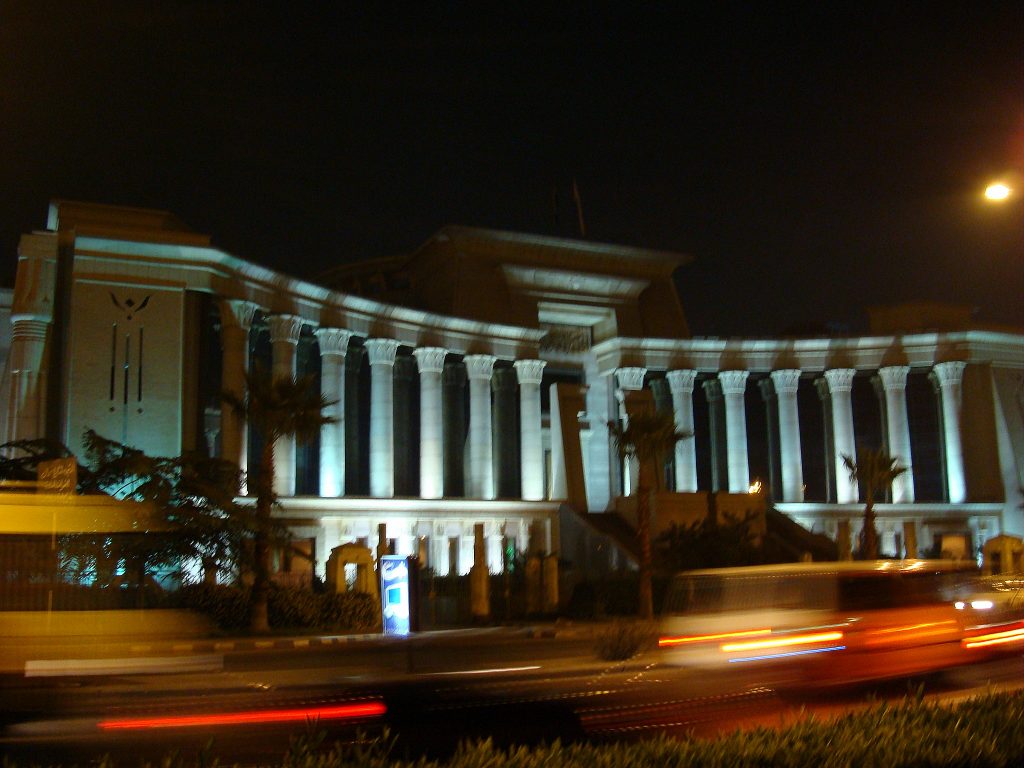
The People’s Assembly or the “Revolutionary Council” as Egypt’s newly elected parliamentarians call themselves may be at risk of being dissolved as quickly as it was formed. In the weeks following the sweeping victory by Islamists – led by the Muslim Brotherhood’s Freedom and Justice Party and the Salafi Nour Party, which together hold around 75 percent of the seats in parliament – disgruntled losing candidates, many of them affiliated with liberal and revolutionary parties, have filed cases in every governorate challenging the validity of election results. The charges, including a number of regulatory violations such as illegal campaigning in the two days prior to polling, are clearly aimed at undermining the legitimacy of the Islamists’ electoral success. Now, losing candidates have gone so far as to question the constitutionality of the actual laws regulating the elections themselves. A successful constitutional challenge, however unlikely, could lead to the dissolution of the assembly and a new round of elections.
On February 22, the Supreme Administrative Court issued a fascinating and potentially transformative judgment regarding the challenged Law on the People’s Assembly, paving the way for a full-blown legal assault on the constitutional legitimacy of the law, which could lead to the dissolution of the newly elected People’s Assembly. A lawsuit filed at the Supreme Administrative Court by the independent candidate Anwar Darwesh (who lost in one of the individual candidacy races) challenges the constitutionality of Articles 3, 6 and 9 in the law, permitting members of political parties to run for the third of parliamentary seats reserved for individual candidacies. The ruling Supreme Council of the Armed Forces (SCAF) added this article to an earlier draft of the law under pressure from political parties which claimed that restricting some seats to non-party members would breach equal opportunity legislation. The new lawsuit has turned this equal opportunity argument on its head, claiming that Article 3 violated the rights of independent candidates who were barred from contesting party-list seats. The vast majority of parliament’s individual candidacy seats are now occupied by members of the Muslim Brotherhood’s Freedom and Justice Party and the Salafist Nour Party. Darwesh cited the following concerns with the electoral law’s Article 3:
- Most of the individual candidates who won maintained party affiliation and received support and funding for their campaign throughout the elections, unlike individual candidates who had no party affiliation and limited funds. Candidates associated parties benefited from brand recognition and a propaganda apparatus that unaffiliated candidates often lacked.
- Two-thirds of the seats in the People’s Assembly were allocated to party lists while only one third of the seats were available to individual candidates, violating their right to equal opportunity.
The clear motivation for the constitutional challenge to the electoral law is concern and resentment over the electoral victory of Islamists. Pressure from Islamists was the main reason the SCAF was forced to amend Decree No.120 (2011) which would have barred individual candidates from maintaining any party affiliation or receiving support from any party. The Brotherhood’s Freedom and Justice Party and Salafi Nour Party strongly objected to this provision which would have limited the number of candidates they could put forward, forcing the SCAF to introduce an amendment allowing part-list candidates to compete in races that were previously open exclusively to individual candidates.
On February 22, the Supreme Administrative Court issued a judgment recommending that Articles 3, 6 and 9 be deemed unconstitutional, referring the case to Supreme Constitutional Court (SCC). A ruling upholding the decision could result in the annulment of a full third of the People’s Assembly. However, Ahmed Mekky, former vice president of Egypt’s Court of Appeals said it is still too early to predict whether the SCC will rule to dissolve the entire parliament or only the one third in question.
Though the possibility remains that the rules regarding individual seats could be cancelled, some scholars, including Cairo University legal scholar Dr. Hossam Eissa, have suggested that any decisions regarding the makeup of the People’s Assembly could not be applied retroactively, preventing the dissolution of the current Islamist-dominated parliament. A similar scenario occurred in 1990, when President Hosni Mubarak announced that a referendum would take place to decide whether Parliament should be dissolved early, following ruling a historic SCC decision ruling that the 1987 elections were unconstitutional because the 1986 electoral law discriminated against independent candidates.
But it is unclear whether calls for the dissolution of the 2012 People’s Assembly will be similarly successful, as the Muslim Brotherhood and Salafis are clearly determined to retain their majority. In a statement published on the Brotherhood’s official website on February 23, Mukhtar Ashri, head of the FJP’s legal committee, said that the SCC does not have the power to challenge the new parliament’s legal or constitutional legitimacy, on the grounds that "the existing Constitutional Declaration is a provisional constitution and the recent elections were held according to its terms.” Mekki warned that dissolving the new parliament could also interfere with the drafting of Egypt’s next constitution, slated to be drafted by a 100-member constituent assembly appointed by both houses of parliament. Whatever the outcome of the SCC deliberations, the case has already introduced another complicating factor in Egypt’s already messy transition.
Salem Mostafa Kamel is an Egyptian legal advisor to the Carter Center’s office in Cairo and previously worked for the global telecommunications firm, Alcatel-Lucent. He majored in law at Ain Shams University and is currently pursuing a Masters degree in international and commercial law at Indiana University. Mr. Kamel’s views are his own and do not represent the Carter Center. He can be reached at salemmostafakamel@hotmail.com.
Photo Credit: Alaeddin Faruki
Image: 5646305.jpg
